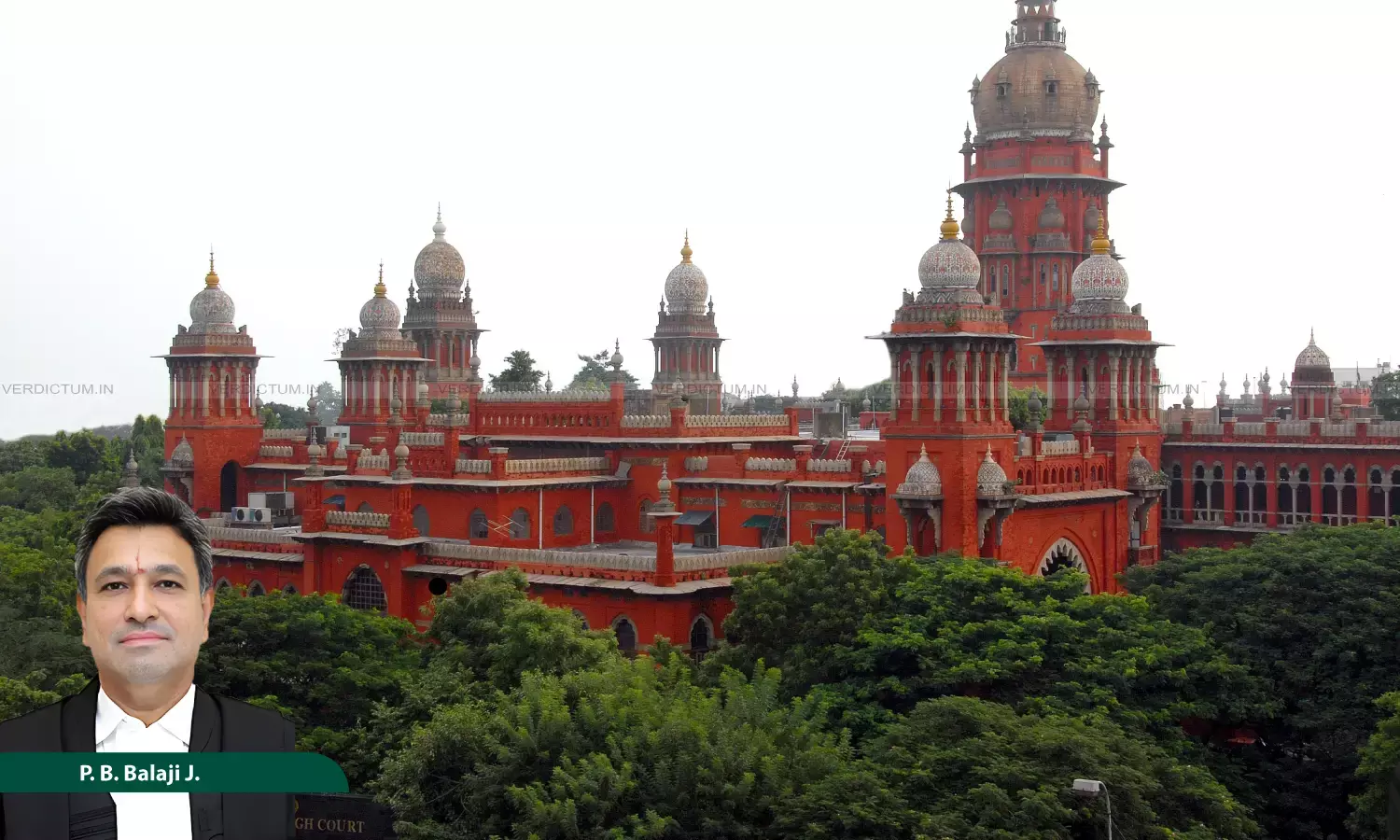Formal Ceremony Not Necessary For Conversion: Madras High Court Allows Divorce Petition Of Mixed Faith Couple Under Hindu Marriage Act
The Madras High Court was considering a Revision Petition against an order rejecting the Divorce Petition on the ground of maintainability.

Justice P.B Balaji, Madras High Court
The Madras High Court while holding that a formal ceremony is not necessary for conversion has allowed the Divorce Petition filed by a couple of mixed faith under Hindu Marriage Act.
The Court was considering a Revision Petition against an order rejecting the Divorce Petition on the ground of maintainability.
The bench of Justice P.B Balaji held, "As held by the Hon’ble Supreme Court, there is no necessity for a person professing a particular religion to claim conversion to another religion by any formal ceremony or even declaration. Mere conduct would suffice to establish conversion. In the present case, the second petitioner, by express conduct, in participating in the marriage solemnization in accordance with Hindu rights and customs and also approaching the Family Court invoking the provisions of the Hindu Marriage Act, 1955 has sufficiently shown that the second petitioner has converted herself to Hindu faith."
The Petitioner was represented by Advocate V.M.Venkataramana.
Facts of the Case
The Petitioners were husband and wife who had decided to dissolve their marriage by mutual consent and presented a Petition under Section 13(B) of the Hindu Marriage Act, 1955. The Court found that the Wife was a Muslim, and therefore, posted the case for arguments on maintainability
Relying on Section 2 of the Act, held that the Act would apply only to persons who are Hindus by religion, or Buddhist, or Jain, or Sikh and domiciled in the territories to which this Act extends and such person not being Muslim, Christian, Parsi, Jew by religion, dismissed the Petition as not maintainable.
Counsel for the Petitioners submitted that though the wife was a Muslim by birth, she has married the husband in accordance with Hindu customs and rites, and the marriage itself was solemnized at temple. It was submitted that the wife never claimed to be a Muslim, but only a Hindu at the time of their marriage and the marriage also having been solemnized in a manner acceptable and permissible under the provisions of the Hindu Marriage Act, there was nothing improper for the P-Petitioners to approach the Court invoking Section 13(B) of the Act or muchless, any of the other provisions of the Hindu Marriage Act.
The Counsel argued that the very fact that the wife has undergone the Marriage ceremonies in accordance with Hindu rites and customs would be sufficient to accept the plea of wife that she professed Hinduism at the time of her marriage.
Reliance was placed on Supreme Court's decision in Perumal Nadar (Dead) by L.R.S Vs. Ponnuswami, 1971
Reasoning By Court
The Court agreed with the Counsel and stated that the Petitioners have invoked the provisions under the Hindu Marriage Act, conscious of the fact that they are only professing Hindu religion and there is no necessity for the Court to conduct any roving enquiry in such circumstances, merely because the wife’s name continues to be her original Muslim name.
"....There was no objection by the Registry or by the Court when the Application was filed invoking Section 13(B) of the Act. In fact, the petitioners having solemnized their marriage in a Hindu Temple and in accordance with Hindu rites and customs, will also not be in a position to seek divorce under the Special Marriage Act as well. The only remedy for the petitioners is to seek dissolution of the marriage invoking the provisions of the Hindu Marriage Act, 1955......As already held the second petitioner, though by birth is a Muslim, by conduct, has clearly demonstrated that she has converted to Hindu faith and mere absence of any ceremony cannot be a ground to dismiss the application for divorce by mutual consent", the Court ruled.
The Petition was accordingly allowed.
Case No.: CRP. No.1148 of 2025
Click here to read/ download Order

